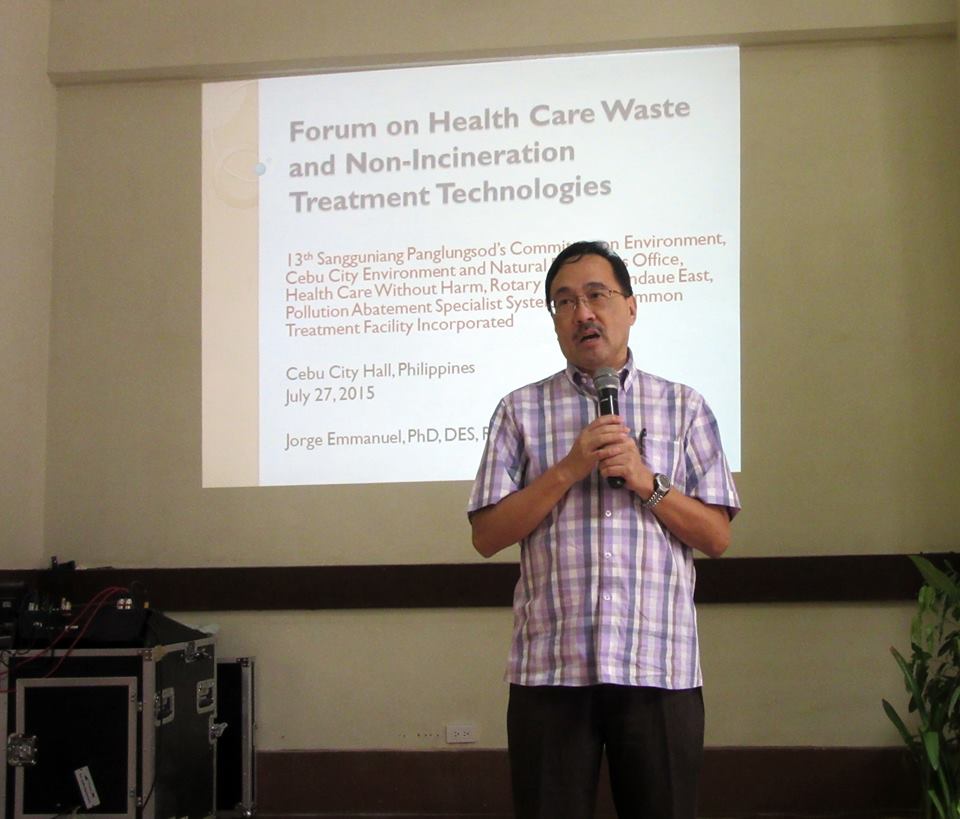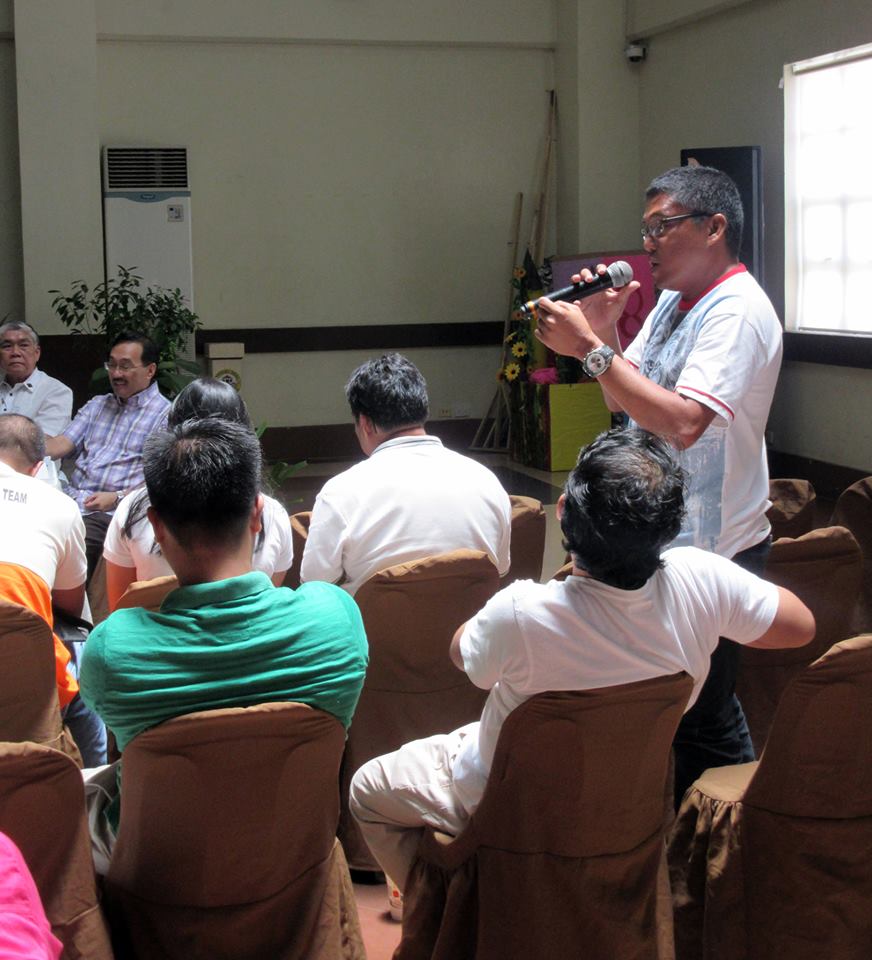HCWH-Asia promotes non-burn waste management technologies in Cebu
Cebu City, Philippines -- Cebu’s growing problem in waste disposal can be solved without compromising both public health and the environment, says international environmental scientist and health care waste management expert Dr. Jorge Emmanuel.
In a public forum organized by Health Care Without Harm-Asia, in partnership with the local government of Cebu City and the Rotary Club of Mandaue East, former Chief Technical Advisor on Health Care Waste of the United Nations Development Programme (UNDP) said that there are environmentally sound alternative technologies and systems that are more effective and low-cost.
Safer and cleaner alternative technologies

Health care waste management expert Dr. Jorge Emmanuel
“Standard autoclaving is one of the cheapest alternative waste treatment technologies that employ steam to disinfect medical wastes. Unlike burn technologies such as incineration, it does not produce toxic substances like dioxins and furans that are hazardous to people’s health.”
In 2014, during the Ebola outbreak in West Africa, Dr. Emmanuel was deployed by the UNDP in Sierra Leone, Liberia, and Guinea to help in the efforts to stem the outbreak by installing autoclaves to safely treat infectious wastes.
“Because of complaints about incinerator smoke from WHO coordinators and local communities, I was sent by the UN to West Africa to install non-incineration technologies to replace the incinerators.”

Participants of the forum held at the Cebu City Hall
Seeing the operation of incinerators and non-incineration technologies side by side and upon finding out that the Ebola virus is killed in a matter of seconds by autoclaves, the Ebola Command Center officials of Liberia now want to replace all their incinerators with autoclaves to deal with their waste problems.

The open forum served as a venue for health facilities to address their concerns about waste management
“The autoclave technology we developed in South Africa turned out to be cheaper than the imported European incinerators that were first brought in to the Ebola-affected countries, and those incinerators did not even meet international dioxin limits. With the autoclaves, we solved the problem of air pollution and Ebola waste treatment at lower cost,” he added.
“When addressing the issue of wastes, local governments should not look for quick and easy solutions which only lead to bigger problems with long-term negative implications on people’s health and the environment,” said Health Care Without Harm - Asia’s Director Merci Ferrer. “LGUs, hospital owners and administrators should invest on health care waste management systems and technologies that do not do more harm such as incinerators or waste to energy technologies.”
In Cebu, one of the hospitals that employ alternative waste management technology is the Perpetual Succor Hospital, which installed as we know the first hospital biodigester in the country, converting food and garden waste into methane gas for the kitchen and laundry.
The forum was attended by over 80 participants representing hospitals and health facilities in Cebu.
